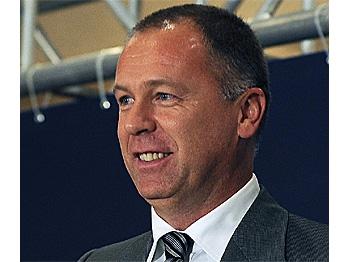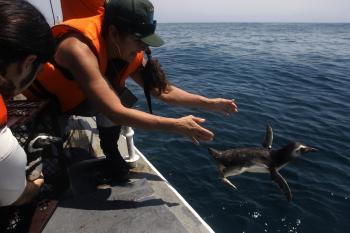RIO DE JANEIRO—The controversy over the Iranian nuclear swap deal that has caused a diplomatic rift between Brazil and the US took center stage at the UN Alliance of Civilizations Forum May 27-29 in Rio de Janeiro.
Brazil’s President Luiz Inacio Lula da Silva, or Lula as he is commonly known, took advantage of his role as host to defend the deal signed between Brazil, Turkey and Iran in his speech to open the second day of the forum officially themed “peace through the interconnection of cultures.”
The deal signed on May 17 allows Iran to ship low-enriched uranium to Turkey in exchange for higher-grade enriched uranium fuel rods that Iran says it will use in a medical research reactor. Brazil endorsed the deal as a bid help avoid a violent conflict in Iran.
“Brazil believes in an understanding that makes the guns silent ... the world needs a peaceful Middle East, and obviously Brazil is not out of this need. We defend a country free of nuclear weapons. We believe that nuclear power should be an instrument for promoting development, not a threat,” said Lula in his speech at the Rio forum.
The US disagrees and has sharply criticized Brazil and Turkey for their lack of unity over handling Iran’s nuclear aspirations.
“[W]e have very serious disagreements with Brazil’s diplomacy vis-à-vis Iran,” said US Secretary of State Hillary Clinton at a press briefing in Washington on Thursday.
“[W]e think buying time for Iran, enabling Iran to avoid international unity with respect to their nuclear program makes the world more dangerous, not less. They have a different perspective on what they see they’re doing,” said Clinton, referring to Brazil.
“We think it’s time to go to the Security Council and that it’s only after the Security Council acts that the Iranians will engage effectively on their nuclear program,” said Clinton.
Brazil’s President Luiz Inacio Lula da Silva, or Lula as he is commonly known, took advantage of his role as host to defend the deal signed between Brazil, Turkey and Iran in his speech to open the second day of the forum officially themed “peace through the interconnection of cultures.”
The deal signed on May 17 allows Iran to ship low-enriched uranium to Turkey in exchange for higher-grade enriched uranium fuel rods that Iran says it will use in a medical research reactor. Brazil endorsed the deal as a bid help avoid a violent conflict in Iran.
“Brazil believes in an understanding that makes the guns silent ... the world needs a peaceful Middle East, and obviously Brazil is not out of this need. We defend a country free of nuclear weapons. We believe that nuclear power should be an instrument for promoting development, not a threat,” said Lula in his speech at the Rio forum.
The US disagrees and has sharply criticized Brazil and Turkey for their lack of unity over handling Iran’s nuclear aspirations.
“[W]e have very serious disagreements with Brazil’s diplomacy vis-à-vis Iran,” said US Secretary of State Hillary Clinton at a press briefing in Washington on Thursday.
“[W]e think buying time for Iran, enabling Iran to avoid international unity with respect to their nuclear program makes the world more dangerous, not less. They have a different perspective on what they see they’re doing,” said Clinton, referring to Brazil.
“We think it’s time to go to the Security Council and that it’s only after the Security Council acts that the Iranians will engage effectively on their nuclear program,” said Clinton.




